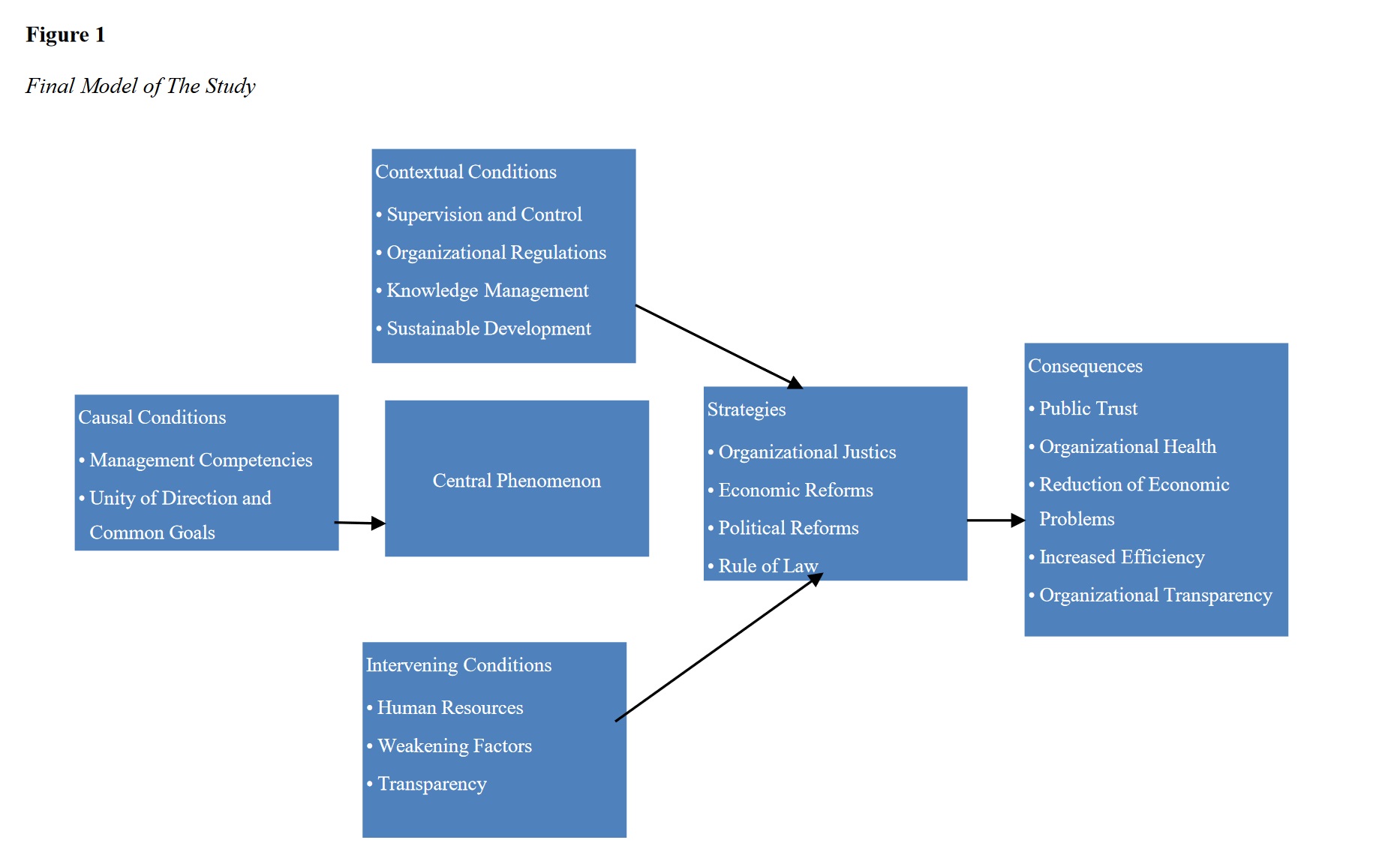Designing a Model for Improving Good Governance in Public Management with a Systemic Approach (Grounded Theory)
Abstract
Objective: The necessity for the public sector to possess the capacity and capability to implement good governance policies is a crucial aspect that must be considered, as without it, the enactment of good governance would not be possible. Therefore, this study aims to design an appropriate model for improving good governance in public management through a systemic approach.
Methodology: Conducted based on grounded theory, this qualitative research study is developmental-application-oriented in its purpose. The study population includes individuals knowledgeable in public management, governance, and systemic thinking. Some experts have been managers in governmental organizations and scholars with scientific works in governance and systemic thinking. The sample size, targeted based on achieving theoretical saturation, was approximately 13 individuals.
Findings: The research findings from open and axial coding include a categorization of causal, contextual, intervening, central, and strategic factors identified in the design and implementation of the good governance improvement model. Ultimately, management competencies, unity of direction, and common goals were identified as causal factors; human resources, weakening factors, and clarification as intervening factors; and supervision and control, organizational regulations, knowledge management, and sustainable development as contextual factors. Good governance strategies also outlined organizational justice, economic reforms, rule of law, political reforms, and outcomes of good governance implementation, including public trust, organizational health, reduced economic problems, increased efficiency, organizational transparency, and factors related to each indicator.
Conclusion: Considering the codes and indicators of identified strategies, it is suggested that training workshops be organized based on principles of legality, strengthening, and developing Islamic and Quranic laws for socializing employees with the organization and encouraging them to adhere to organizational regulations, and the government employee salary system should be reformed and aligned with the employees’ expertise.
Downloads

Downloads
Additional Files
Published
Issue
Section
License
Copyright (c) 2024 Ali Moghaddamnezhad (Author); Shahram Mirzaei Daryani (Corresponding Author); Majid Ahmadlu, Farzad Sattari Aredebili (Author)

This work is licensed under a Creative Commons Attribution-NonCommercial 4.0 International License.























